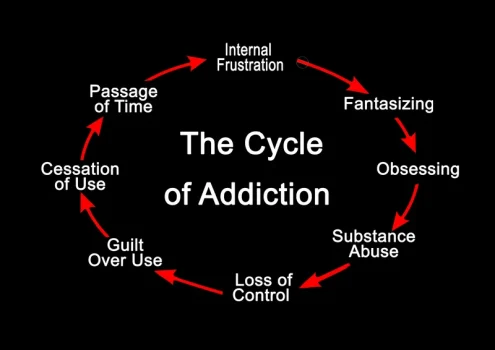
During alcohol withdrawal, the glutamate-mediated excitotoxicity induces neuronal death, which may explain structural brain alterations observed early in abstinence in AUD patients (Tsai and Coyle, 1998). The frontal lobes being particularly rich in glutamatergic pathways (Kril et al., 1997), they are likely to be especially vulnerable alcohol brain fog to the severity of AWS. In this case, altered brain structure would constitute a vulnerability factor for exhibiting more severe AWS. Further studies including longitudinal measures of glutamate levels combined with structural MRI at different stages of the disease (active drinking, withdrawal period and abstinence) are now required.
- In animal studies, motor convulsions may occur spontaneously, but can be more readily elicited by exposure to sensory stimuli (e.g., audiogenic), handling manipulation, electroconvulsive stimulation, and various chemoconvulsant agents.
- If you do not have insurance, your doctor can help put you in touch with a facility or treatment program that offers financial aid, financing, or a sliding scale payment system, in which you pay what you can.
- While these symptoms are more severe than Stage 1, they are not life-threatening.
- Before we look at alcohol’s role in brain fog, let’s take a moment to define brain fog.
- During early sobriety, areas such as quality sleep, good nutrition and even hydration status can still be impacted by our alcohol abuse (Kverno, 2021).
The Risks of Alcohol Poisoning

As a result, they may perform poorly at school or work and be at an increased risk of injury. People who drink heavily can also be at risk of alcohol poisoning. Seizures can occur within 6 to 48 hours, while hallucinations can occur within 12 to 48 hours after drinking is reduced or stopped, says Dr. Nolan.
- A doctor can perform a typical checkup and a blood test to see if the individual is still in good health or needs a treatment plan or medication.
- They can also help you manage any symptoms of alcohol withdrawal you experience when you stop drinking.
- If you are a daily drinker, a heavy drinker, or a frequent binge drinker, suddenly quitting will likely produce a wide range of uncomfortable symptoms.
- A doctor may also need to administer fluids intravenously to prevent dehydration and correct electrolyte abnormalities.
Symptoms of Alcohol Withdrawal
The smoke will clear in due time and your noggin will be back in shape before you know it, especially with the help of these brain-boosting practices. Sometimes, brain fog is less related to slow brain function and due more to overactive brain activity, such as over-analyzing a simple situation or obsessing about a problem. One way to let go of nit-picking or ruminating thoughts is to channel your energy into a creative activity, like drawing, needlepoint or cooking. Death and permanent brain damage are the worst-case scenarios of alcohol poisoning. Anyone who sees someone experience it must immediately seek medical attention.
Alcohol withdrawal syndrome

Brain fog is a common symptom of alcohol withdrawal that can occur after quitting alcohol. It is characterized by difficulty concentrating, confusion, and difficulty remembering things – all of which can be motivating signs that you are on the right track to a healthier lifestyle. If you need to quit drinking, don’t let alcohol withdrawal scare you off. There are medications and treatments available that can help you get through those first early days of no alcohol consumption. If your alcohol use has been heavy and chronic, talk to a doctor about medically supervised detox.
The brain adapts to this by lessening dopamine production and sensitivity. Over time, you need more and more of a drug or alcohol to achieve the same effect. The brain keeps adjusting at each level of drug or alcohol use, developing even more tolerance. There are not many research studies on PAWS and there is no test for it.
Symptoms of Alcohol Withdrawal: Timeline and Signs of Danger
I go to parties and no one has to hide alcohol from me – I just don’t want it. And I’m always grateful when someone thinks to buy non-alcoholic tipples so I don’t feel left out. I also started keeping a “brag book”, writing down three things a day I was proud of, even if it was just putting on a wash or cooking dinner. By the end of the course, I’d achieved the 30 alcohol-free day challenge, and treated myself to a speedboat on the Thames, followed by a meal at Hawksmoor, and then Abba Voyage at the O2.

- But delirium tremens is a medical emergency and requires a hospital stay.
- Even a mild binge can lead to hangovers that create foggy thinking.
- If you’re receiving inpatient treatment, your doctor may perform toxicology screens more than once to monitor your alcohol levels.
- It’s not unusual to experience brain fog after a night of drinking.
- This is largely because our body is working hard to clear a buildup of alcohol-related toxins while also battling cravings for more alcohol, making it difficult to think clearly.
- If you need to quit drinking, don’t let alcohol withdrawal scare you off.